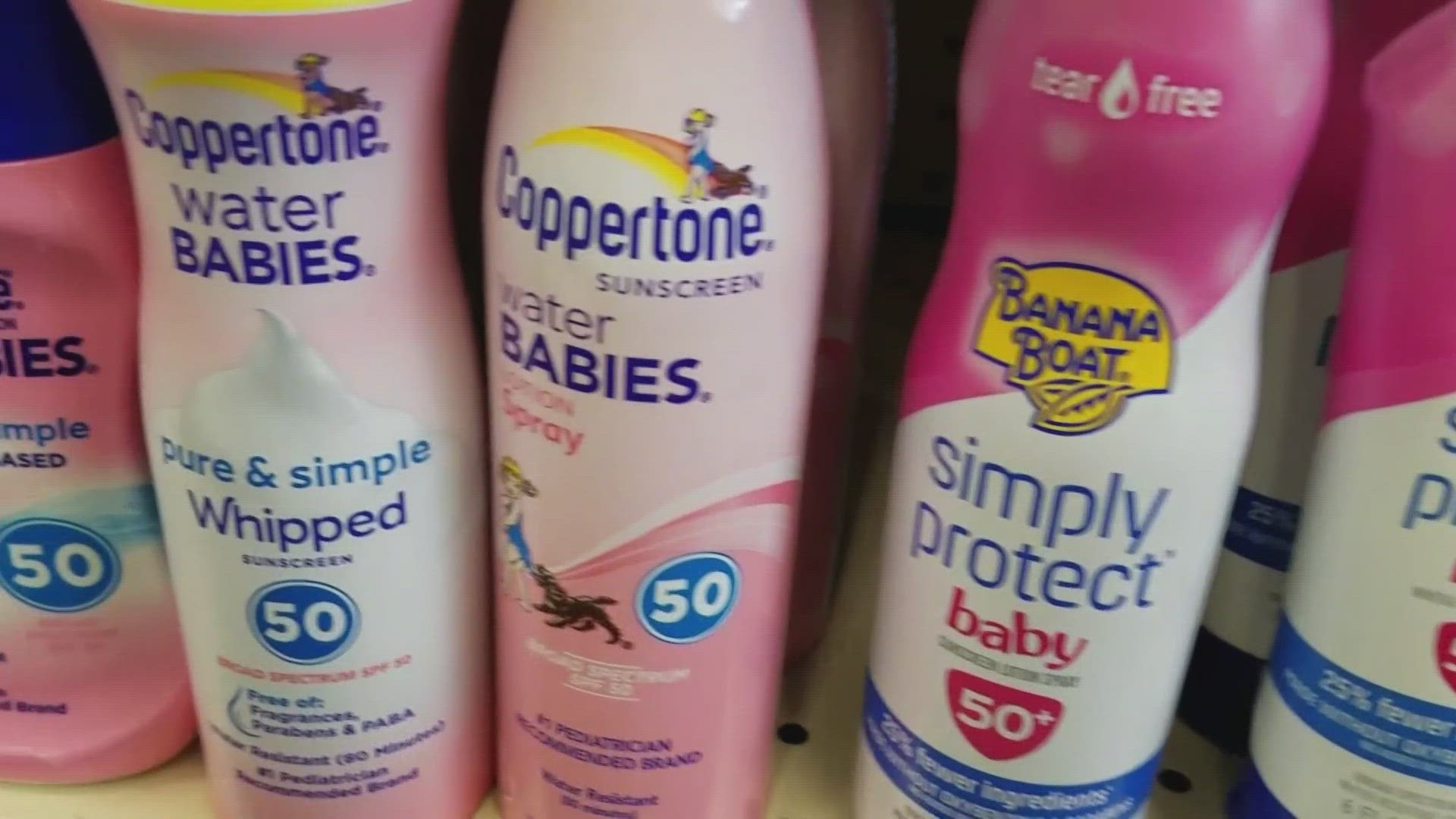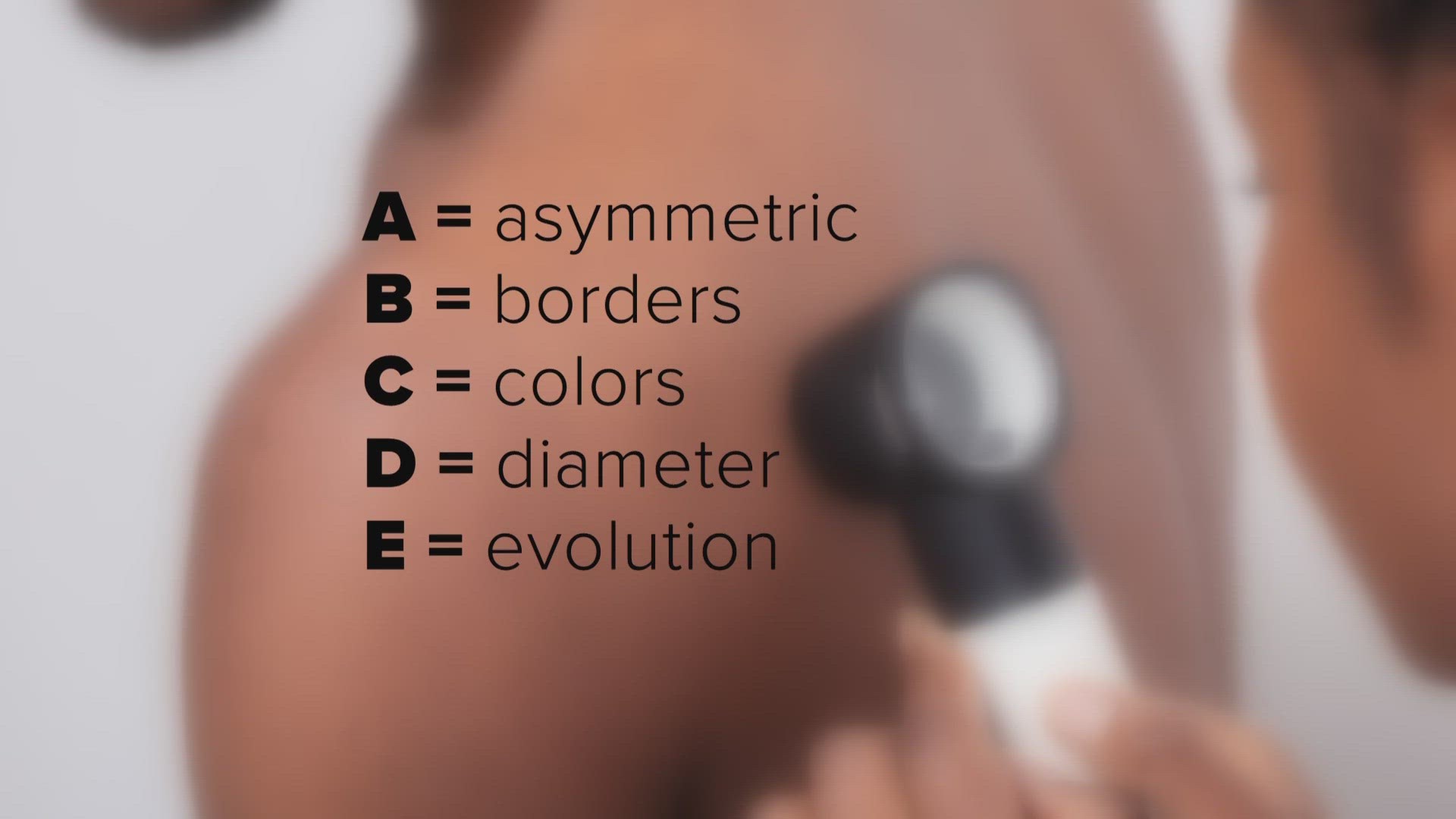KNOXVILLE, Tenn. — With the hot temperatures, many of us love to make the most out of the summer and spend some time outside. However, doctors say you should keep skin health top of mind because too much unprotected exposure to the sun could increase your risk of developing skin cancer.
Doctor Ronnie Hamrick, a physician at the University of Tennessee Medical Center (UTMC), said skin cancer is the number one most common cancer they see in people. With that being said, doctor Hamrick emphasized he does not want you to be a hermit who stays indoors all of the time.
He said it is important to be outside and do the things you love and bring you joy. It is all a matter of doing it safely. So if you plan on spending time outdoors this summer, here are some easy tips you should keep in mind to protect your skin:
1. Plan your outdoor activities accordingly. Doctor Hamrick said ultraviolet lights tend to be most intense between 10:00 a.m. and 2:00 p.m. If you can avoid being outside during those hours that would be ideal, but if you cannot, try to find some shade.
2. Choose your clothing wisely. Look for hats that provide full shade. If you can see holes through your hat, it is probably not providing as much protection as you would like. Some clothes have an Ultraviolet Protection Factor (UPF) rating, which is analogous to what we have for sunscreen and sunblock.
3. Wear sunscreen. Doctor Hamrick said choosing a product that you like to use, that you are comfortable with and that you will reapply throughout the course of the day is important. He also recommended a sunscreen with a number of 30 Sun Protection Factor (SPF) or higher.
"And just like with putting paint over wallpaper, the more paint you use, the more you are actually going to get the result you want," he explained. "So as sunscreen, it is important to, if not use as much as you need to to get the number on the bottle, at least choose a number that, if you are not using it perfectly, will get you the protection that you need."
Doctor Hamrick added you should reapply sunscreen every two hours or after swimming or sweating.
The physician said, when it comes to skin cancer, early detection is key. He mentioned it is important to remember your ABCs when looking at your skin:
A: Look for spots in your skin that are asymmetric or have weird shapes.
B: Look for spots with irregular or vague borders. If you have a hard time drawing a clear boundary between the spot and your normal skin, that should peak your interest.
C: Look out for spots with unusual or multiple colors.
D: Spots with a diameter bigger than the size of a pencil eraser are not normal.
E: Keep an eye on spots that have been evolving over a relatively short period of time.
Doctor Hamrick said if anything on your skin concerns you, get it checked out.
"There are a lot of folks who come to see me who have spots they are concerned about, but they are totally harmless," he shared. "And sometimes people apologize and say, 'Gosh, I am sorry I wasted your time', but that is never the situation for me. I would much rather have people come in to have spots checked that they are concerned about and be reassured than have them ignore spots that are actually dangerous."
Doctor Hamrick recommends having a thorough skin checkup by someone like a dermatologist at least once in your life to establish what your risk factors are. He added then you will get further recommendations for either self-checks at home or checkups with a professional.


